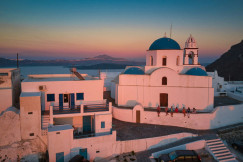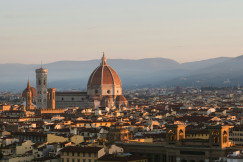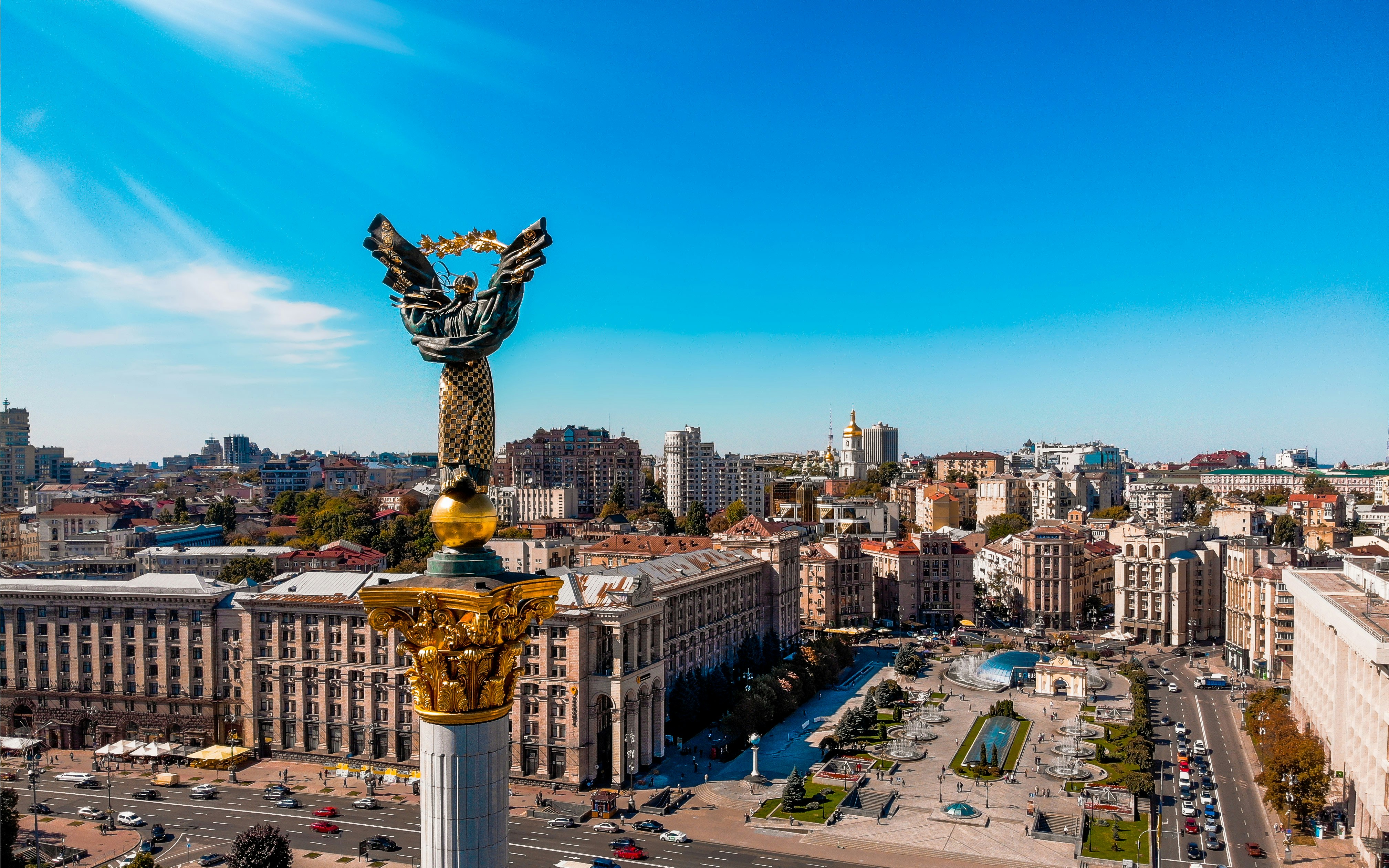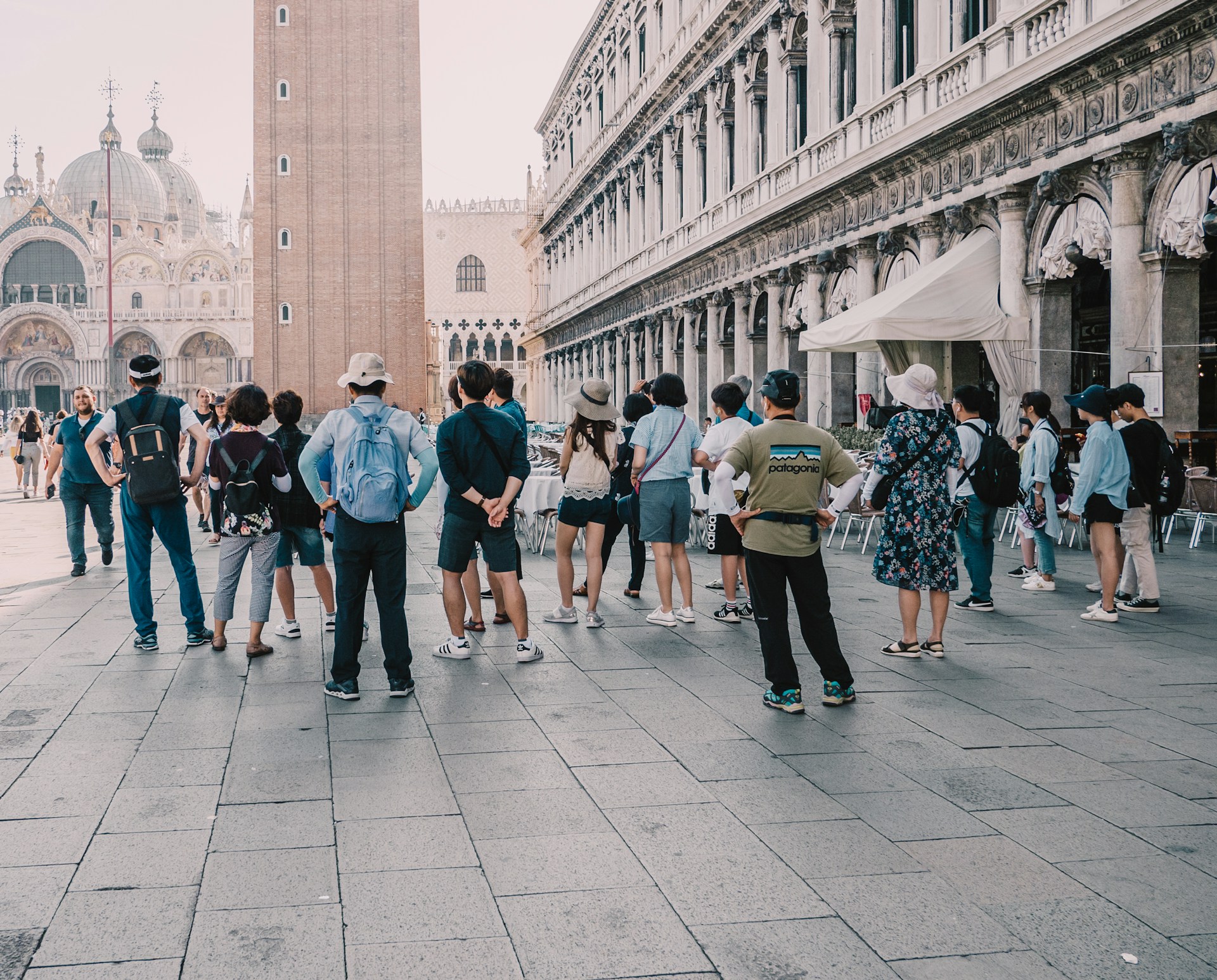Articles
05 August 2025
Valencia- European Capital of Smart Tourism 2024: A Smart Summer Without the Strain
Articles
05 August 2025
Adventure tourism
Coastal, maritime and inland water tourism
Cultural tourism
+46 more
Login / create an account to be able to react
-
117
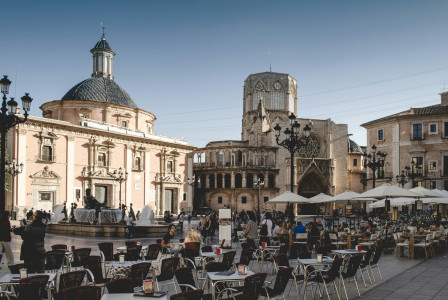
The European Capital of Smart Tourism initiative, launched by the European Union, recognises cities that demonstrate excellence in innovative, inclusive, and sustainable tourism practices. The title is awarded based on four core criteria: sustainability, digitalisation, cultural heritage and creativity, and accessibility. In 2024, Valencia received this title - alongside the title of European Green Capital -underscoring its strategic efforts in tourism governance that prioritise resident well-being, environmental resilience, and long-term planning.
As one of Spain’s most visited cities and a growing Mediterranean summer destination, Valencia has had to address the challenge of accommodating millions of tourists annually while maintaining its urban quality of life. Its smart tourism approach, based on regulatory frameworks, digital tools, and participatory governance, offers a case study for other EU destinations managing seasonal tourism pressures.
Topics
Spain
Academic / Research and VET Institutions
Business Support Organisation
Company with 250 or more employees
Cluster Organisations
Consumer Organisations
Cultural and Heritage Organisations
Destination Management & Marketing Organisations
EU Institutions
Financial Institutions and Investors
Industry Associations and Chambers of Commerce
International Organisations
Local Authorities
Media / Journalist Organisations
National authorities
Networks and Federations / Confederations
NGOs / Non-profits
Notified Bodies
Regional Authorities
SMEs (a company with less than 250 employees)
Social Economy Entity
Trade Unions
Other
-
Specific types of tourism
-
-
Adventure tourism
-
Coastal, maritime and inland water tourism
-
Cultural tourism
-
Ecotourism
-
Education tourism
-
Festival tourism
-
Gastronomy tourism
-
Health and medical tourism
-
MICE tourism
-
Mountain tourism
-
Religious tourism
-
Rural tourism
-
Sports tourism
-
Urban/city tourism
-
Wellness tourism
-
-
Transition Pathway Strategic Areas
-
-
Accessible tourism services
-
Best practices, peer learning and networking
-
Changes in tourism demand and opportunities
-
Circularity of tourism services
-
Digitalisation of tourism SMEs and destinations
-
Innovative tourism services
-
Tourism strategies
-
Well-being of residents
-
-
Business activities
-
-
Activities of amusement parks and theme parks
-
Activities of associations and other organisations supporting tourism
-
Air passenger transport
-
Camping grounds, recreational vehicle parks and trailer parks
-
Events catering and other food services
-
Festivals, cultural and entertainment activities
-
Gardens and nature reserves activities
-
Holiday Housing / Apartments and other short stay accommodation
-
Hotel and similar accommodation
-
Mobile beverage services
-
Mobile food services
-
Museums
-
Operation of historical sites
-
Other
-
Other accommodation
-
Other amusement and recreation activities
-
Other food and beverage services
-
Other holiday reservation services
-
Other tourism transportation activities
-
Rail Passenger transport
-
Recreational and sport activities
-
Restaurants, cafes and bars (Food and Beverage serving activities)
-
Road passenger transport
-
Tour operator activities
-
Travel agency activities
-
Water (sea, coastal and inland) passenger transport
-
Share
Smart Tourism with a Local Focus
Valencia’s tourism strategy is guided by the principle that urban tourism should enhance, rather than disrupt, local life. In recent years, the city has introduced a set of targeted regulations to address issues related to housing affordability, cruise tourism, and neighbourhood balance. As Valencia began to enforce tougher zoning and licensing measures, tourist rentals have been largely pushed back from residential areas. Platforms that fail to comply now face the heavy penalties with fines up to 600 000 euro, according to the regional government.
In the port area, cruise ship arrivals are coordinated through time slots and passenger limits to avoid overcrowding in central districts. City authorities have also invested in decentralising visitor flows through new tourist offices and real-time monitoring tools. These measures are shaped by community feedback collected via surveys and forums, ensuring that tourism development aligns with local expectations.
This resident-focused approach represents a shift from a volume-driven tourism model to one that prioritises social sustainability - an objective echoed in EU tourism policy.
Green Mobility for Visitors and Inhabitants
Sustainable mobility plays a central role in Valencia’s tourism transformation. The city has expanded its cycling infrastructure to over 120 kilometres, anchored by the Jardín del Turia - a former riverbed repurposed as a linear park that links key areas of the city, including cultural, sports, and coastal sites.
Public transport has also been modernised. Low-emission buses, improved tram services, and better links to tourist attractions make it easier for visitors to travel sustainably. Informational campaigns, multilingual apps, and integrated ticketing systems promote environmentally friendly choices. During peak months, car-free zones are extended and traffic is managed through smart signalling that responds to real-time congestion levels.
Access to green and blue areas is another component of the city’s sustainable offer. From the beaches to the Albufera Natural Park, visitors can use low-impact transport options, helping to reduce emissions while supporting more balanced mobility during the summer.
Data-Driven Management of Tourism Flows
A defining feature of Valencia’s tourism strategy is its use of data and digital technologies. The city was the first global destination to measure tourism’s environmental impact - including carbon and water footprints - according to international standards. Between 2019 and 2022, Visit Valencia reports an 8% reduction in tourism-related emissions, despite rising visitor numbers post-pandemic.
Sensor data collected across the city feeds into a central dashboard that tracks crowd levels, transport usage, and pressure points. This allows for real-time adjustments, such as redirecting foot traffic or increasing cleaning services. Visitors also receive timely updates through mobile apps, contributing to a smoother and safer experience.
In parallel, Valencia is promoting lesser-known neighbourhoods and cultural assets to distribute tourist activity more evenly. This aligns with EU recommendations to shift from quantity-based to impact-based indicators when assessing tourism performance.
Balancing Summer Demand
Valencia has implemented a set of targeted policies to manage summer tourism while preserving urban functionality. The redevelopment of La Marina, a former industrial port, into a multifunctional public space exemplifies this. The site now combines cultural venues, start-up hubs, and sports facilities with seaside attractions. Programming is designed to minimise disturbance, with controls on noise, hours, and community involvement in planning.
Beach areas are subject to strict environmental standards and accessibility measures. Urban beaches carry Blue Flag certifications and are managed through real-time capacity tools, accessible facilities, and dedicated waste services. Nature-based solutions are being implemented to protect the coastline and mitigate environmental stress.
Cultural programming during high season focuses on low-impact, decentralised activities. Open-air cinema, local festivals, and guided tours offer alternatives to large-scale gatherings. These initiatives aim to maintain Valencia’s appeal while avoiding the adverse effects of overtourism.
A Systemic Approach to Sustainability
Sustainability in Valencia is embedded across sectors rather than treated as a standalone goal. In tourism, circular economy practices are encouraged: restaurants are supported in sourcing local products and reducing waste, while hotels engage in certification schemes that promote energy and water efficiency.
Valencia is also one of the cities selected under the EU Mission for 100 Climate-Neutral and Smart Cities by 2030, reinforcing its role in advancing EU climate objectives. The tourism sector is fully integrated into this transition. The EU-funded FUTOURISM project supports innovation in services, digitalisation, and SME training, illustrating how tourism can contribute to broader policy goals.
These initiatives demonstrate that economic viability and environmental responsibility can go hand in hand - an approach fully in line with the EU’s vision for the future of tourism.
Why It Matters
Many southern and coastal cities in Europe face growing pressures during the summer season. Valencia provides a structured response based on governance, digital tools, and citizen involvement. Its experience shows that tourism can be planned in a way that respects urban limits and serves long-term public interest.
Importantly, the city does not claim to have solved all the issues related to tourism. Rather, it offers a model of anticipatory planning, transparent monitoring, and adaptive management. This practical and process-based approach is likely to be of interest to other EU cities facing similar challenges.
Conclusion
The European Capital of Smart Tourism award is not a reward for popularity, but for systemic innovation. Valencia earned the 2024 title through long-term investment in a tourism model that supports the city’s social, environmental, and economic sustainability.
As of mid-2025, high-season pressures remain a major challenge across the EU. Yet Valencia’s experience demonstrates that meaningful progress is possible when cities align local strategies with EU frameworks and involve both citizens and stakeholders in shaping the future of tourism.
Comments (0)
Related content
See also
Destination Europe & Ukraine: Closing Messages
- Categories
- Coastal, maritime and inland water tourism Cultural tourism Ecotourism +64 more
When Too Much Becomes Harmful: Rethinking Unbalanced Tourism in Europe
- Categories
- Coastal, maritime and inland water tourism Cultural tourism Ecotourism +64 more



